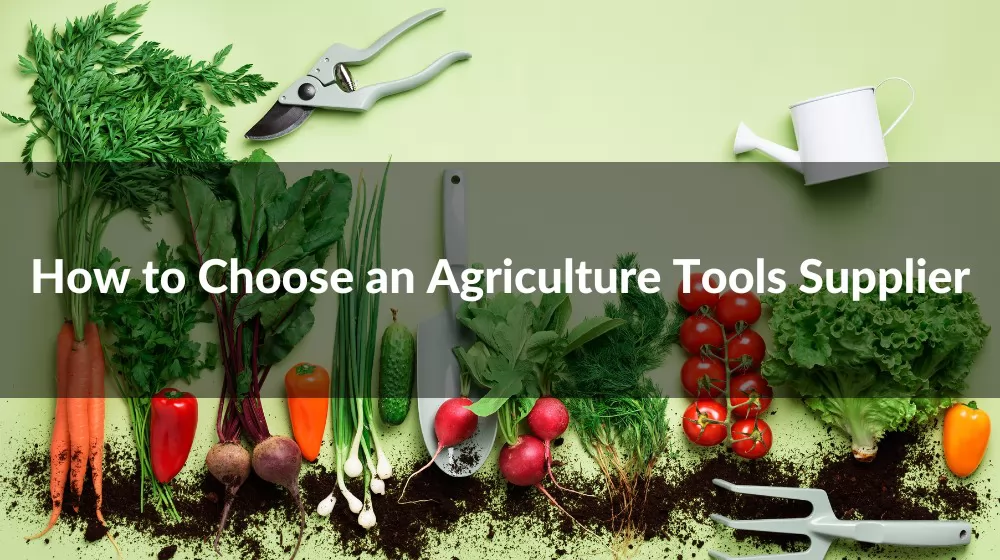
In the dynamic world of agriculture, the right tools are more than a necessity – they're the key to efficiency and productivity. This comprehensive guide is designed to help you navigate the complexities of choosing the best agricultural tools manufacturer and supplier, ensuring you make informed decisions that positively impact your farming operations. Join us as we delve into the world of high-quality agricultural tools and discover what it takes to find a partner that aligns with your agricultural aspirations.
When it comes to ensuring efficiency and productivity in the agricultural sector, the role of high-quality tools cannot be overstated. Choosing the right agriculture tools manufacturer is not just a matter of preference, but a crucial decision that impacts the overall success of farming operations. High-quality tools from a reliable agricultural tools supplier can make a significant difference in your daily agricultural activities.
The right manufacturer provides not only tools that are durable and effective but also ensures innovation and technological advancement in their products. This becomes especially important in an industry that is rapidly evolving with the integration of modern technology. Moreover, the support and service that comes from a reputable manufacturer can be invaluable, especially when it comes to maintenance and handling of complex agricultural tools.
The first step in selecting the right tools involves a thorough assessment of your agricultural needs. Every farming operation is unique, with specific requirements based on the type of crops, the size of the farm, soil conditions, and climatic factors. Understanding these variables is crucial in determining the kinds of tools and machinery that will optimize your operations.
Begin by evaluating the key tasks that form the backbone of your agricultural activities. Are you involved in large-scale plowing, seeding, and harvesting? Or do your operations focus more on specialized tasks like vineyard maintenance or orchard management? The scale and nature of these tasks will guide you in pinpointing the types of tools that will be most beneficial.
However, the downside of handheld tools is their labor intensity. They are not suited for large areas or heavy-duty tasks. Over-reliance on these tools can lead to inefficiencies and increased labor costs in larger operations. Therefore, while they are indispensable for certain tasks, they may not be the all-encompassing solution for every farming need.
Once you have a clear understanding of your needs, the next step is matching these needs with the right tools. This is where the expertise of a seasoned agricultural tools manufacturer becomes invaluable. They can provide insights into which tools are best suited for your specific farming tasks.
For example, if soil cultivation is a priority, you’ll need robust plowing and tilling equipment. If you're focused on organic farming, tools that aid in composting and eco-friendly pest control might be essential. The goal is to ensure that every tool you invest in directly contributes to enhancing productivity and efficiency on your farm.
The world of agricultural tools is diverse, offering a wide range of equipment tailored to various farming needs. Understanding the types of tools available is crucial in making an informed decision. This exploration will guide you through the array of options, from simple handheld tools to more complex machinery, helping you to choose the right tools from your agriculture tools manufacturer.
Handheld tools are the backbone of many small-scale farming operations. They are cost-effective, easy to use, and require minimal maintenance. Common handheld tools include hoes, spades, rakes, and pruners. Their simplicity makes them ideal for precision tasks like planting, weeding, and harvesting on a small scale.
However, the downside of handheld tools is their labor intensity. They are not suited for large areas or heavy-duty tasks. Over-reliance on these tools can lead to inefficiencies and increased labor costs in larger operations. Therefore, while they are indispensable for certain tasks, they may not be the all-encompassing solution for every farming need.
For larger scale operations, machinery becomes a necessity. Tractors, harvesters, and plows offer efficiency and time-saving benefits that handheld tools cannot match. When considering machinery, it’s essential to assess factors like size, power, and functionality. The right machinery from a competent agriculture tools supplier can dramatically increase productivity and reduce manual labor.
Selecting the right agricultural tools manufacturer is a decision that requires careful consideration of several critical factors. This choice will significantly influence the efficiency, productivity, and longevity of the tools you use. Here, we discuss the key aspects to keep in mind when making this important decision.
The quality of the tools you purchase is paramount. High-quality tools not only perform better but also have a longer lifespan, reducing the need for frequent replacements. When assessing the quality offered by a manufacturer, look for certifications and standards compliance. These are indicators that the manufacturer adheres to industry best practices and quality benchmarks.
Additionally, consider the materials used in the tools. Are they made from high-grade, durable materials that can withstand regular use under varying conditions? The construction and design of the tools also play a vital role in their functionality and efficiency. A reputable agriculture tools supplier should be able to provide detailed information about their manufacturing processes and the materials used.
Durability and reliability are the hallmarks of good agricultural tools. These characteristics ensure that the tools can withstand the rigors of farming activities over a long period. Assess the track record of the manufacturer regarding the durability of their products. Customer testimonials, product reviews, and case studies can provide insights into the long-term performance of the tools.

Geography plays a significant role in the selection of an agricultural tools manufacturer. Whether to opt for a local or an international supplier involves weighing several benefits and drawbacks, especially considering how geographical factors influence the suitability and efficiency of agricultural tools.
Local manufacturers often have a better understanding of the specific agricultural challenges and needs within a region. This familiarity can translate into tools that are more suited to local conditions, such as soil type, climate, and common farming practices. Additionally, working with local suppliers can mean shorter lead times, lower shipping costs, and easier communication.
However, international manufacturers might offer a broader range of products and advanced technology, especially if they operate in countries that are at the forefront of agricultural innovation. They might also provide competitive pricing due to larger scale operations. The challenge with international suppliers often lies in longer shipping times, potential import taxes, and sometimes, challenges in after-sales service due to distance and time zone differences.
The geographical location of your farming operation significantly impacts the type of tools that will be most effective. For instance, tools designed for dry, arid regions may not be suitable for humid, tropical climates. Similarly, the topography of your land – whether it is flat or hilly – will influence the choice of machinery and equipment.
Cost analysis is a crucial aspect when it comes to investing in agricultural tools. Balancing your budget while ensuring you get the best value for your investment is key. This chapter will guide you through budgeting for agricultural tools and understanding the relationship between price and quality.
Budgeting effectively for agricultural tools involves more than just looking at the initial purchase price. Consider the total cost of ownership, which includes maintenance, repair costs, and potential downtime. A comprehensive budget should also factor in the expected lifespan of the tools and the return on investment in terms of productivity and efficiency gains.
It’s advisable to consult with a knowledgeable agriculture tools supplier to get an accurate estimate of these costs. This information can help you in making a more informed decision that aligns with your financial constraints and long-term operational goals.
While budget constraints are a reality, it’s important to understand the relationship between price and quality. Cheaper tools may seem attractive initially, but they might not offer the best value in the long run if they are not durable or efficient. Conversely, more expensive tools from a reputed agricultural tools manufacturer could offer better quality, longevity, and performance, leading to lower overall costs over time.
In the world of agricultural tools, certifications and adherence to standards are not just formalities; they are indicators of quality, safety, and reliability. This chapter explores the importance of these certifications and how to identify and understand the ones that matter in the agricultural industry.
Compliance with agricultural standards ensures that the tools and equipment you use meet certain criteria for quality and safety. These standards cover various aspects, including material quality, design, efficiency, and environmental impact. Choosing a agricultural tools manufacturer that complies with recognized standards reflects a commitment to quality and a concern for the safety of the end-users and the environment.
Standards such as ISO (International Organization for Standardization) or specific agricultural tool standards in your country or region can serve as a guide to ensure that the equipment you purchase is up to the mark. Compliance with these standards often means the tools are more durable, efficient, and safer to use, which is critical in high-stake farming operations.
Not all certifications are created equal, and it’s important to recognize which ones are trustworthy and relevant to your needs. Look for certifications from recognized and reputable organizations. These certifications should be verifiable and relevant to the agricultural sector.
Customization and innovation in agricultural tools are not just about adding more features; they're about enhancing efficiency, productivity, and user experience. This chapter explores how tailored tools and special features can significantly benefit your farming operations.
Every farming operation has unique challenges and requirements. The ability to customize tools to meet these specific needs can be a game-changer. A agricultural tools manufacturer who offers customization options demonstrates an understanding of diverse agricultural contexts and a willingness to cater to specific customer needs.
Customization can range from adjustable tool sizes to suit different user ergonomics, to modifications in machinery for specific types of crops or soil conditions. Such tailored solutions ensure that the tools are not just effective but also comfortable and efficient to use, leading to better results and reduced physical strain on the user.
When exploring options, look for innovative features that can enhance the functionality and efficiency of agricultural tools. Features such as precision agriculture technology, smart sensors for soil analysis, or automated systems can vastly improve the accuracy and efficiency of farming tasks.
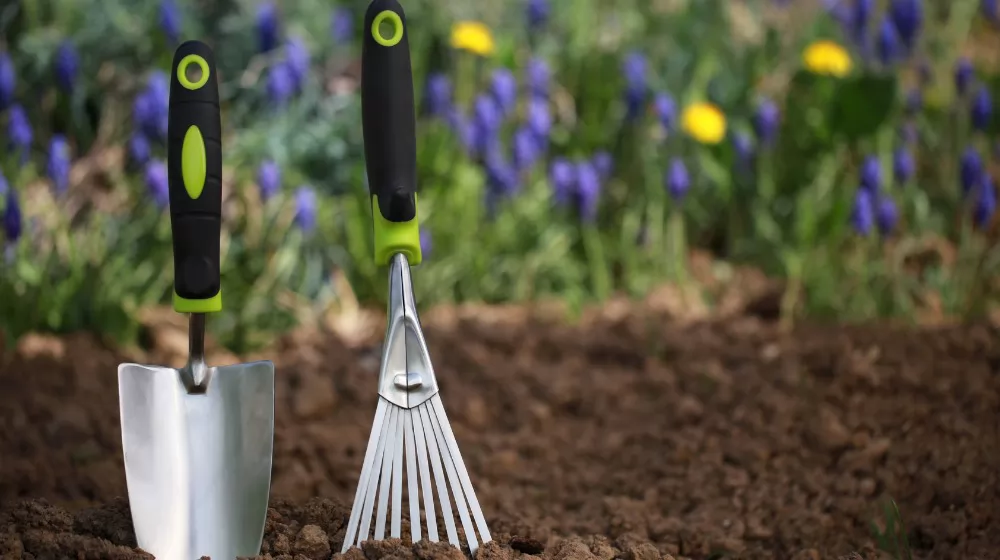
The choice of material and the overall build quality are fundamental factors that determine the durability and performance of agricultural tools. This chapter emphasizes the importance of these aspects and guides you on how to evaluate them.
The durability of agricultural tools is largely dependent on the materials used in their construction. High-grade steel, aluminum, and reinforced plastics are commonly used for their strength and longevity. When selecting tools, inquire about the materials used and understand their properties, such as resistance to corrosion, strength-to-weight ratios, and suitability for different environmental conditions.
A reliable agricultural tools manufacturer should provide detailed information about the materials used and how they enhance the durability and functionality of their products. This information is crucial in assessing whether the tools can withstand regular use and harsh farming conditions over an extended period.
Beyond the material, the build quality of the tools plays a significant role in their performance. This encompasses the design, engineering, and assembly of the tools. High-quality construction ensures that the tools operate efficiently, maintain their integrity under stress, and have a longer lifespan.
The value of agricultural tools is not just in their initial quality and performance, but also in the after-sales service and support provided by the manufacturer. This chapter highlights the significance of warranty and repair services and the crucial role of ongoing support in the lifecycle of agricultural tools.
A robust warranty is a sign of a manufacturer's confidence in their product. When choosing an agricultural tools manufacturer, understand the details of their warranty policy. What does it cover, and for how long? Be clear about the terms and conditions, including what constitutes a valid warranty claim.
Equally important are repair services. Inquire about the availability of spare parts and the manufacturer’s capacity to provide timely repairs. A reliable supplier should have a system in place for quick and efficient handling of repair and maintenance issues, minimizing any potential downtime for your agricultural operations.
Ongoing support extends beyond warranties and repairs. It includes technical support, customer service, and access to updates or upgrades. An excellent agriculture tools supplier will offer comprehensive support, ensuring you get the maximum benefit from your tools throughout their lifespan.
In today's world, the emphasis on sustainability and environmental stewardship is more critical than ever, especially in the agricultural sector. This chapter explores how eco-friendly practices in manufacturing and sustainability play a vital role in agriculture.
When selecting an agricultural tools manufacturer, it's important to consider their commitment to eco-friendly practices. This includes the use of sustainable materials, energy-efficient production methods, and processes that minimize waste and environmental impact. A manufacturer that prioritizes these practices not only contributes to environmental conservation but also demonstrates a forward-thinking approach that can be crucial in adapting to future agricultural challenges.
Additionally, tools made from recycled or sustainable materials can be just as durable and effective as those made from traditional materials, while being more environmentally friendly. Ask your supplier about their sustainability credentials and how they are incorporating eco-friendly practices into their manufacturing process.
Sustainability in agriculture goes beyond just the tools used; it encompasses the entire farming process. This includes water conservation, soil health, reducing the carbon footprint, and using renewable energy sources. Tools and equipment that support these practices play a significant role in promoting sustainable agriculture.
The agricultural sector is rapidly evolving, with technological advancements continually reshaping the landscape. This chapter delves into the latest innovations in agricultural tools and how these technological enhancements can significantly boost efficiency and productivity.
Staying informed about the latest advancements in agricultural tools is crucial for modern farmers. Innovations like precision agriculture, automated machinery, and smart farming technologies are revolutionizing traditional farming practices. An agricultural tools manufacturer that stays at the forefront of these developments can provide you with tools that bring substantial improvements in accuracy, cost-efficiency, and yield.
Look for manufacturers who invest in research and development and collaborate with technological innovators. This commitment to innovation is a strong indicator that their products will continue to evolve and adapt to the changing needs of modern agriculture.
Technological advancements in agricultural tools aren't just about new gadgets; they're about creating real improvements in farming operations. GPS technology, for example, has enabled more precise field mapping and planting, reducing waste and increasing crop yields. Automated systems can take on repetitive tasks, freeing up farmers to focus on more complex aspects of farm management.
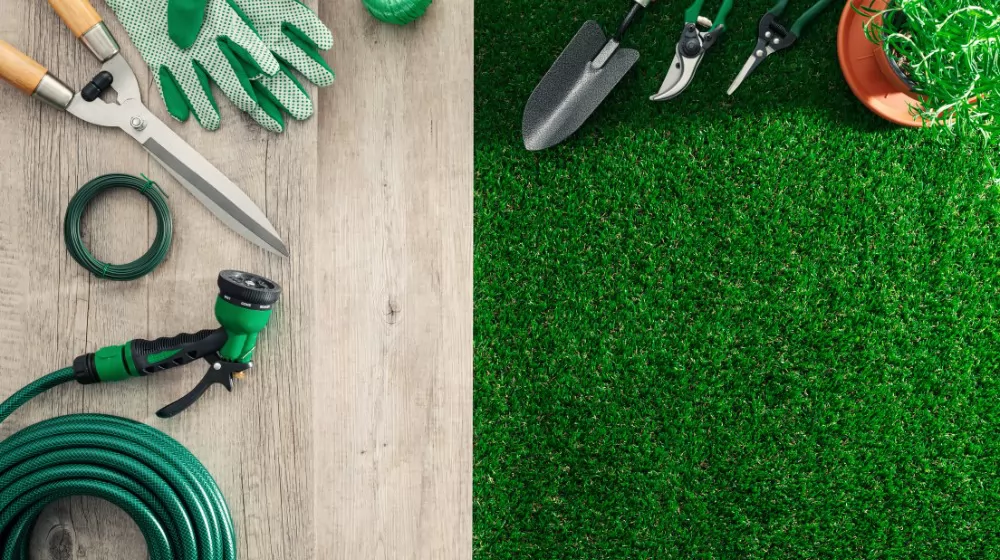
Establishing and maintaining a strong relationship with your agricultural tools manufacturer is not just beneficial; it's strategic. This chapter explores the advantages of building solid partnerships with manufacturers and how such relationships can add value to your agricultural endeavors.
A strong partnership with a manufacturer goes beyond transactional interactions. It can lead to better customization, improved support, and access to the latest products and innovations. When a manufacturer understands your specific needs and challenges, they are better positioned to offer solutions that are tailored to your operations.
Building this relationship involves regular communication, feedback sharing, and sometimes, collaborative problem-solving. It's about creating a dialogue where your insights as a farmer can influence future product development, and the manufacturer’s expertise can help optimize your farming practices.
Moreover, a good relationship can lead to preferential terms, such as better pricing, priority service, and access to training and support. It can also provide you with a direct line to technical advice and insights into upcoming trends and technologies in agricultural tools.
In conclusion, selecting the right agricultural tools manufacturer is a pivotal decision that shapes the future of your farming operations. Quality, innovation, sustainability, and strong manufacturer relationships are key elements to consider. For those seeking excellence in these areas, Linkwin stands out as a leading Chinese manufacturer in the agricultural tools industry. Discover their range of top-tier agricultural solutions tailored to your needs at www.agriculturaltool.com. Embrace the future of farming with Linkwin – where innovation meets tradition.






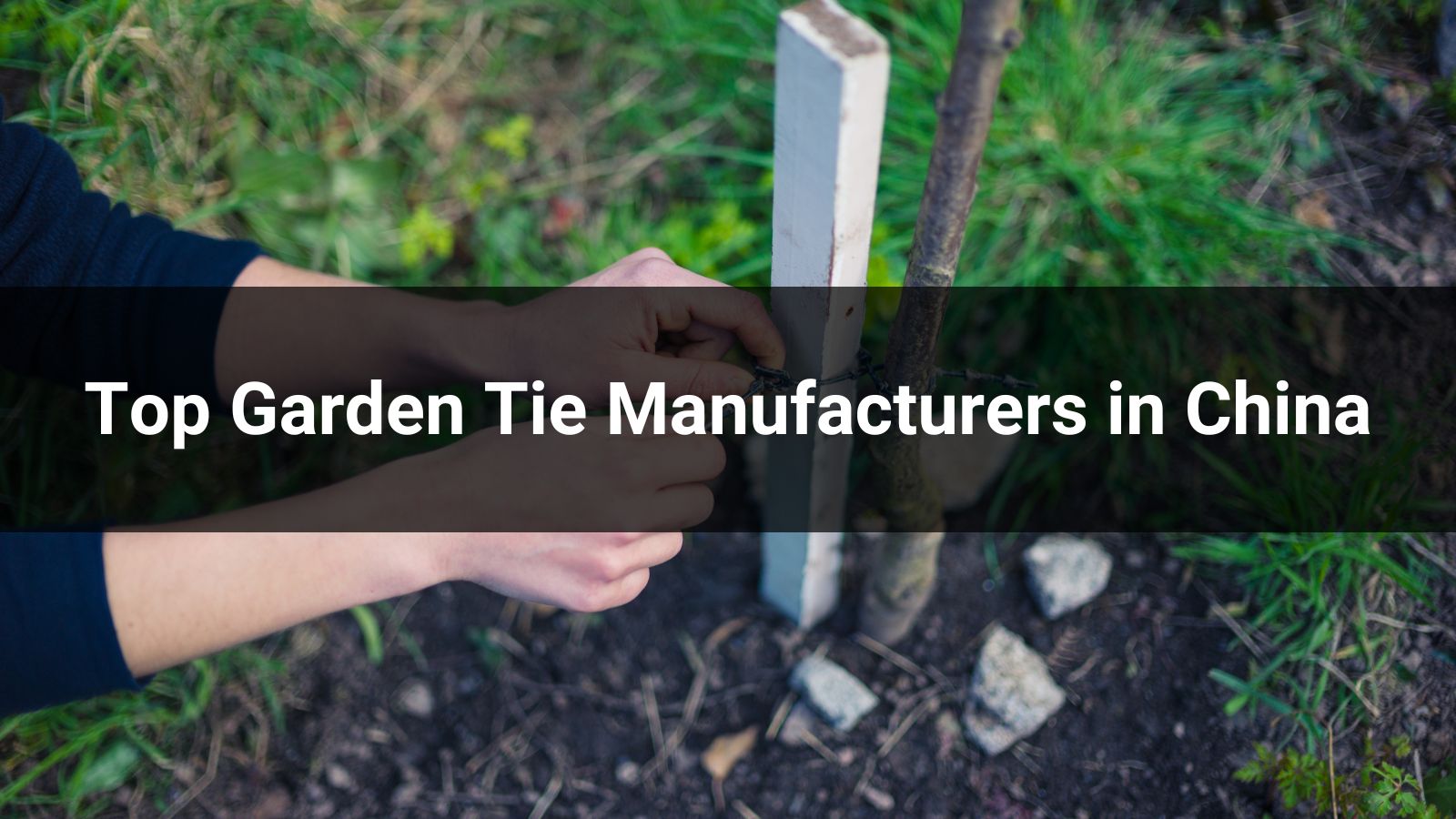

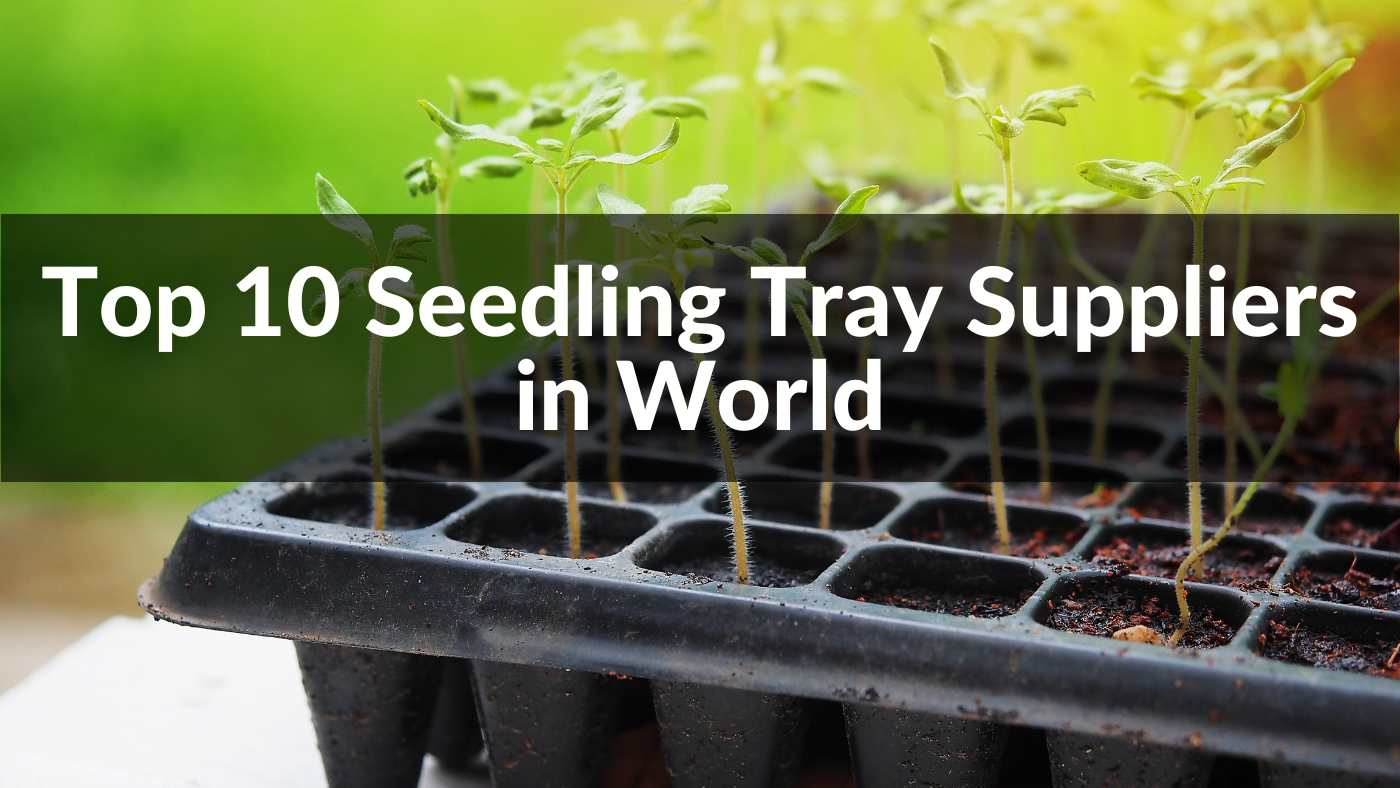


We use cookies to make the website work, to provide advanced features, social media and traffic analysis, and we use analytics and third-party advertising cookies. If you choose to click "Deny All", you will retain the default setting of not allowing the use of cookies or other tracking tools other than technical tools.

